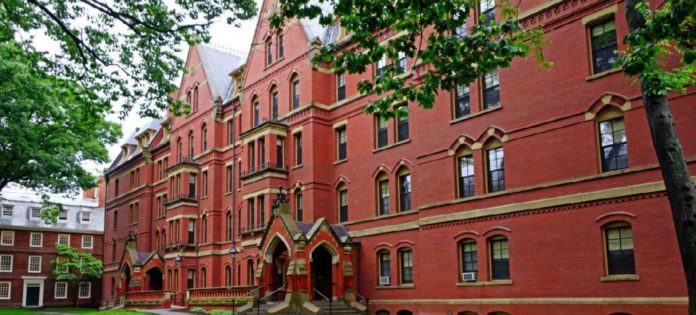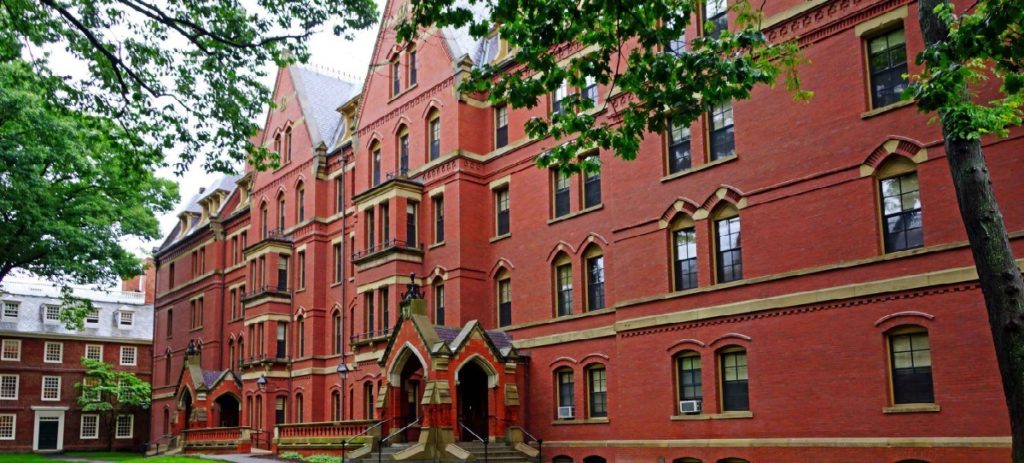Los cursos online gratuitos cuentan cada vez con más adeptos. Por ello, y atendiendo a su demanda, prestigiosas universidades de todo el mundo ofrecen estos cursos online o ‘MOOCS’ de mnera gratuita.
La Universidad de Harvard, atendiendo a esta tendencia mundial, se suma a la larga lista de universidades del mundo que brindan esta posibilidad, mediante una plataforma especial fundada junto al MIT.
La media de los MOOCs disponibles en edX tiene una duración de entre 6 y 8 semanas, y la posibilidad de acceder a un certificado que demuestre lo aprendido en el curso. Este certificado tiene un coste aproximado de 50 dólares, pero no es obligatorio tramitarlo.
Universia ha recopilado los 86 cursos que se encuentran en su plataforma oficial:
- Christianity Through Its Scriptures
- Super-Earths And Life
- Hamlet’s Ghost
- First Nights: Igor Stravinsky’s The Rite of Spring: Modernism, Ballet, and Riots
- The Book: Book Sleuthing: What 19th-Century Books Can Tell Us About the Rise of the Reading Public?
- Case Studies in Functional Genomics
- Introduction to Bioconductor: Annotation and Analysis of Genomes and Genomic Assays
- AP® Computer Science Principles
- Early Christianity: The Letters of Paul
- Contract Law: From Trust to Promise to Contract
- The Book: Print and Manuscript in Western Europe, Asia and the Middle East (1450-1650)
- First Nights: Handel’s Messiah and Baroque Oratorio
- High-performance Computing for Reproducible Genomics
- Introduction to Linear Models and Matrix Algebra
- Introduction to Family Engagement in Education
- Introduction to Data Wise: A Collaborative Process to Improve Learning & Teaching
- The Book: Making and Meaning in the Medieval Manuscript
- The Book: The Medieval Book of Hours: Art and Devotion in the Later Middle Ages
- Statistical Inference and Modeling for High-throughput Experiments
- The Book: The History of the Book in the 17th and 18th Century Europe
- First Nights: Beethoven’s 9th Symphony and the 19th Century Orchestra
- Religious Literacy: Traditions and Scriptures
- High-Dimensional Data Analysis
- Introduction to Computer Science
- The Book: Scrolls in the Age of the Book
- The Book: Books in the Medieval Liturgy
- First Nights: Monteverdi’s L’Orfeo and the Birth of Opera
- Using Python for Research
- PredictionX: John Snow and the Cholera Epidemic of 1854
- Health and Society
- Humanitarian Response to Conflict and Disaster
- Islam Through Its Scriptures
- Poetry in America: The Poetry of Early New England
- Fundamentals of Clinical Trials
- First Nights: Berlioz’s Symphonie Fantastique and Program Music in the 19th Century
- Readings in Global Health
- Entrepreneurship and Healthcare in Emerging Economies
- Statistics and R
- Poetry in America: The Civil War and Its Aftermath
- Poetry in America: Whitman
- Central Challenges of American National Security, Strategy, and the Press
- Health in Numbers: Quantitative Methods in Clinical & Public Health Research
- Science & Cooking: From Haute Cuisine to Soft Matter Science
- Poetry in America: Emily Dickinson
- Poetry in America: Modernism
- Energy Within Environmental Constraints
- Masterpieces of World Literature
- Cell Biology: Mitochondria
- Buddhism Through Its Scriptures
- Hinduism Through Its Scriptures
- Innovating in Health Care
- The Einstein Revolution
- Justice
- JuryX: Deliberations for Social Change
- Leaders of Learning
- American Government
- Principles of Biochemistry
- Lessons from Ebola: Preventing the Next Pandemic
- Poetry in America: Nature and Nation, 1700-1850
- AnatomyX: Musculoskeletal Cases
- Bioethics: The Law, Medicine, and Ethics of Reproductive Technologies and Genetics
- The Ancient Greek Hero in 24 Hours
- United States Health Policy
- Global Health Case Studies from a Biosocial Perspective
- Improving Global Health: Focusing on Quality and Safety
- Judaism Through Its Scriptures
- Visualizing Japan (1850s-1930s): Westernization, Protest, Modernity
- Fundamentals of Neuroscience Part 1: Electrical Properties of the Neuron
- Fundamentals of Neuroscience Part 2: Neurons and Networks
- The Fundamentals of Neuroscience Part 3: The Brain
- China (Part 1): Political and Intellectual Foundations: From the Sage Kings to Confucius and the Legalists
- China (Part 2): The Creation and End of Centralized Empire
- China (Part 3): Cosmopolitan Tang: Aristocratic Culture
- China (Part 4): Literati China: Examinations and Neo-Confucianism
- China (Part 5): From a Global Empire under the Mongols to a Global Economy under the Ming Dynasty
- China (Part 6): The Manchus and the Qing Dynasty
- China (Part 7): Invasions, Rebellions and the Fall of Imperial China
- China (Part 8): Creating Modern China: The Birth of a Nation
- China (Part 9): China and Communism
- China (Part 10): Greater China Today: The People’s Republic, Taiwan, and Hong Kong
- Saving Schools, Mini-Course 1: History and Politics of U.S. Education
- Saving Schools, Mini-Course 2: Teacher Policies
- Saving Schools, Mini-Course 3: Accountability and National Standards
- Saving Schools, Mini-Course 4: School Choice
- The Book: Monasteries, Schools, and Notaries, Part 1: Reading the Late Medieval Marseille Archive
- The Book: Monasteries, Schools, and Notaries, Part 2: Introduction to the Transitional Gothic Script


